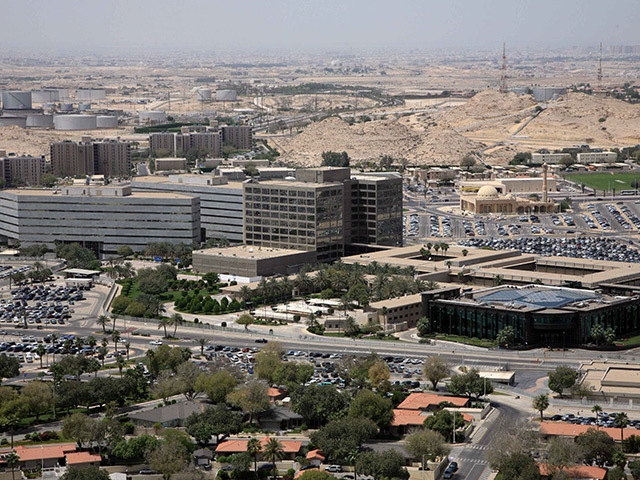
Saudi Arabian Oil Co., the world’s largest oil exporter, increased production to an annual record last year before the kingdom led OPEC and other major producers to curb output to counter a global oversupply.
Crude production averaged 10.5 million barrels a day compared with 10.2 million barrels in 2015, the state-owned company known as Aramco said in its annual review published Thursday on its website. Crude oil and condensate reserves stood at 260.8 billion barrels compared with 261.1 billion barrels a year earlier. Natural gas production rose to 12 billion standard cubic feet a day from 11.6 billion standard cubic feet.
“This past year, Saudi Aramco leveraged its capabilities, talent, innovation and fiscal discipline to ensure resilience and realize landmark achievements, including record high rates of crude oil production, raw gas processing and sales gas production,” Chairman Khalid Al-Falih, who is also Saudi Arabia’s energy minister, said in the review. “All of this was achieved against the backdrop of persistently low oil prices and a weak global economy.”
Saudi Arabia led the Organization of Petroleum Exporting Countries’ decision to begin cutting production in January to reduce swollen global inventories and bolster the price of oil. In May, OPEC and its partners including Russia extended their agreement for nine months through March 2018 because the oil market had failed to re-balance. The price for benchmark Brent crude has declined 15 percent this year. Aramco accounts currently for all of Saudi Arabia’s oil production because a zone it shares with Kuwait is closed.
Energy discoveries last year included two oil fields and one for gas, compared with two gas fields and three oil deposits in 2015, the company said.
Aramco is planning to sell “not far from 5 percent” of company shares next year, Crown Prince Mohammed bin Salman has said, in what could be the world’s biggest initial public offering. Analysts at Sanford C. Bernstein & Co. and Rystad Energy AS said in March that the IPO has a potential market value of more than $1 trillion.
The kingdom’s economic reform plan, which seeks to “diversify the national economy beyond oil and build a thriving private sector, will enable Saudi Aramco to expand its global presence,” Al-Falih said in the review.
Aramco is successfully using more resources and services from local companies to support employment and create a reliable source of supply, according to Aramco President Amin Nasser. “The value of our direct material procurement from local manufacturers increased by $800 million to reach $2.9 billion in 2016, representing 43.5 percent of our material procurement spending,” he said in the report.
Recommended for you
